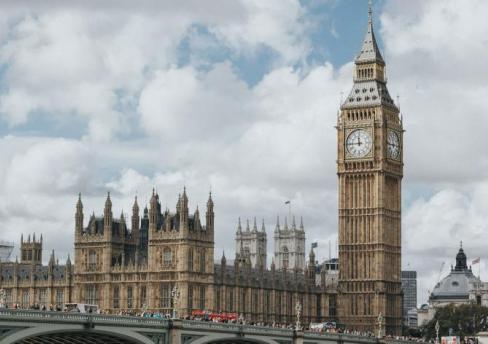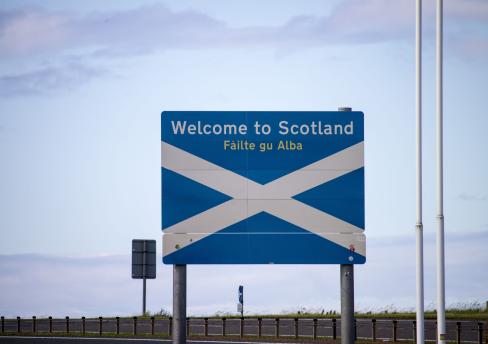Boris Johnson has become the Prime Minister of the United Kingdom. Like so much around Brexit, this too comes into the category of "who would have predicted that a year ago". However predicting what will happen in the next few weeks and months is probably venturing into the area of the impossible.
Few would dispute that Mr Johnson is a "marmite" politician. He has been ultimately elected by a very small but very supportive proportion of Conservative party members who may or may not reflect the Conservative electorate more generally, but certainly do not represent the wider electorate in the country. However that may not have mattered, other than as a philosophical question on democracy, had he carried the majority of his party or of the House of Commons with him. In light of the Cabinet resignations and open declarations from many Conservative MPs that they cannot support the new leader's policies it suggests a fractured party on the government green benches. This is a pretty unusual political position by any standard for a new administration, especially one whose overall majority in the House of Commons is wafer thin. It is not a recipe for stability in these already unclear times.
So what is known of Mr Johnson's policies for the days to come? His main Brexit position is apparently clear. The UK will leave the EU on 31 October 2019 even if it does so without a deal. Beyond that statement, much of the detail is coming from his "allies". They brief that the existing withdrawal agreement is dead. However opportunity awaits! There is still sufficient time to negotiate a new deal with the EU before the end of October which will not include things like the Irish backstop provisions. Even if a deal cannot be agreed by then, there will be no extension and the UK leaves the EU. We will trade on WTO terms and all will be well.
This optimistic approach appears to ignore the recent warnings of the economic damage this would do to the pound, to GDP, to trade revenues and the economy as recently issued by the Office for Budget Responsibility, the Bank of England and other independent economic and financial regulators and commentators. However the new PM's allies say these concerns are overstated.
In addition to Mr Johnson's position on Brexit, he has made a number of promises on spending, although he is short on detail as to where the money will come from.
It will be very interesting to see the composition of his Cabinet. He is likely to appoint a majority of Ministers who think the way he does. It has been said that a condition of being in the Cabinet is that Ministers must support him on a no deal Brexit approach. Since collective Cabinet responsibility has been missing from Mrs May's Cabinet for some time, at least that would be a welcome return of Cabinet discipline. However that may also mean he will be short of constructive challenge in Cabinet itself unless he includes some softer Brexit members.
He has an inbox full of tricky issues which individually, would worry any PM and put together are daunting. He has to deal with the Iran ship seizure situation, the relationship with the USA and its President and appointing a new USA ambassador, ongoing relations with Russia, day to day dealings with the EU in light of his "no deal" comments and the EU comments that the withdrawal agreement will not be reopened.
This all has to happen against a background of intense government preparation to ensure the UK can cope with a no deal scenario which will not leave much time for other initiatives. He will also be aware of groups of his own and other MPs sitting in Westminster corners and coffee rooms with a well thumbed copy of Erskine May, the parliamentary procedure bible, looking for ways to thwart his ambition to leave on 31 October without a deal. The first legislative attempt has already been made by amending the Northern Ireland (Executive Formation) Bill to ensure the House keeps sitting until 31 October and cannot be prorogued. The first court case is about to start in the Court of Session next week seeking a declarator that the Queen should ignore any request from the PM to prorogue her Parliament. As a constitutional proposition that is controversial to say the least. These are unlikely to be the last examples to cause the new PM difficulties in their different fields.
Hanging over all these issues is the threat of an early general election which, despite what they may say publically, is unlikely to be music to the ears of anyone except possibly the Liberal Democrat party and perhaps the Brexit Party. Since the position of the DUP, who have mostly supported the Government so far, is not clear on Mr Johnson's no deal policy that may be another difficulty for him.
The uncertainty carries on for those of us planning the future of business and even our daily lives outside Westminster, and possibly also for a large number of our MPs inside its walls. Mr Johnson may therefore wish to take heed of a piece of advice given by one of his predecessors as PM: make sure you can count. That will be a piece of advice he would be well advised to follow or he too will become quickly enmeshed in nail biting votes in the Commons. Detail will matter.
The content of this webpage is for information only and is not intended to be construed as legal advice and should not be treated as a substitute for specific advice. Morton Fraser LLP accepts no responsibility for the content of any third party website to which this webpage refers. Morton Fraser LLP is authorised and regulated by the Financial Conduct Authority.










